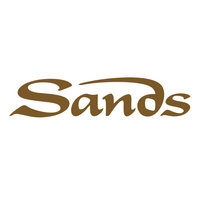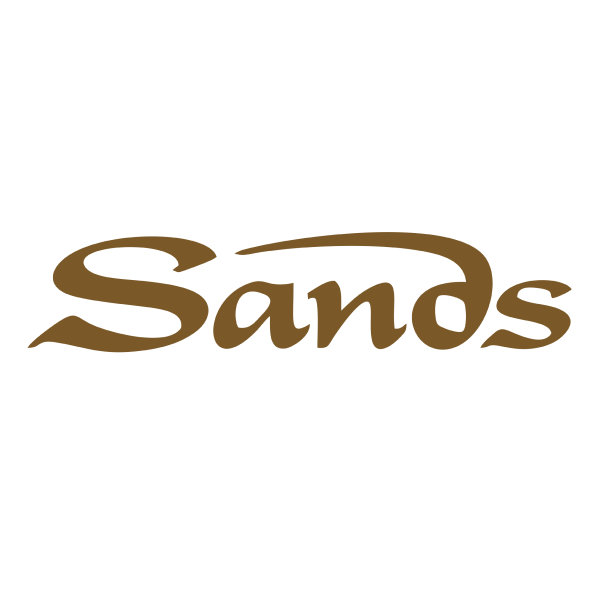
Las Vegas Sands Corp
NYSE:LVS


| US |

|
Johnson & Johnson
NYSE:JNJ
|
Pharmaceuticals
|
| US |

|
Berkshire Hathaway Inc
NYSE:BRK.A
|
Financial Services
|
| US |

|
Bank of America Corp
NYSE:BAC
|
Banking
|
| US |

|
Mastercard Inc
NYSE:MA
|
Technology
|
| US |

|
UnitedHealth Group Inc
NYSE:UNH
|
Health Care
|
| US |

|
Exxon Mobil Corp
NYSE:XOM
|
Energy
|
| US |

|
Pfizer Inc
NYSE:PFE
|
Pharmaceuticals
|
| US |

|
Palantir Technologies Inc
NYSE:PLTR
|
Technology
|
| US |

|
Nike Inc
NYSE:NKE
|
Textiles, Apparel & Luxury Goods
|
| US |

|
Visa Inc
NYSE:V
|
Technology
|
| CN |

|
Alibaba Group Holding Ltd
NYSE:BABA
|
Retail
|
| US |

|
3M Co
NYSE:MMM
|
Industrial Conglomerates
|
| US |

|
JPMorgan Chase & Co
NYSE:JPM
|
Banking
|
| US |

|
Coca-Cola Co
NYSE:KO
|
Beverages
|
| US |

|
Walmart Inc
NYSE:WMT
|
Retail
|
| US |

|
Verizon Communications Inc
NYSE:VZ
|
Telecommunication
|
Utilize notes to systematically review your investment decisions. By reflecting on past outcomes, you can discern effective strategies and identify those that underperformed. This continuous feedback loop enables you to adapt and refine your approach, optimizing for future success.
Each note serves as a learning point, offering insights into your decision-making processes. Over time, you'll accumulate a personalized database of knowledge, enhancing your ability to make informed decisions quickly and effectively.
With a comprehensive record of your investment history at your fingertips, you can compare current opportunities against past experiences. This not only bolsters your confidence but also ensures that each decision is grounded in a well-documented rationale.
Do you really want to delete this note?
This action cannot be undone.

| 52 Week Range |
37.66
55.25
|
| Price Target |
|
We'll email you a reminder when the closing price reaches USD.
Choose the stock you wish to monitor with a price alert.

|
Johnson & Johnson
NYSE:JNJ
|
US |

|
Berkshire Hathaway Inc
NYSE:BRK.A
|
US |

|
Bank of America Corp
NYSE:BAC
|
US |

|
Mastercard Inc
NYSE:MA
|
US |

|
UnitedHealth Group Inc
NYSE:UNH
|
US |

|
Exxon Mobil Corp
NYSE:XOM
|
US |

|
Pfizer Inc
NYSE:PFE
|
US |

|
Palantir Technologies Inc
NYSE:PLTR
|
US |

|
Nike Inc
NYSE:NKE
|
US |

|
Visa Inc
NYSE:V
|
US |

|
Alibaba Group Holding Ltd
NYSE:BABA
|
CN |

|
3M Co
NYSE:MMM
|
US |

|
JPMorgan Chase & Co
NYSE:JPM
|
US |

|
Coca-Cola Co
NYSE:KO
|
US |

|
Walmart Inc
NYSE:WMT
|
US |

|
Verizon Communications Inc
NYSE:VZ
|
US |
This alert will be permanently deleted.
 Las Vegas Sands Corp
Las Vegas Sands Corp
Las Vegas Sands Corp
Investor Relations
Las Vegas Sands Corp., a titan in the global hospitality and gaming industry, began its ascent in 1988 with the development of The Venetian in Las Vegas — a venture that redefined luxury in the heart of the gaming capital of the world. This enterprise wasn't just about glitz and glamour; it was a strategic move positioning the company as a pioneer in integrated resort development, a model combining casino gaming with convention space, fine dining, shopping, and opulent accommodations. Their business model revolves not merely around betting tables and slot machines but creating an all-encompassing experience that draws in diverse streams of revenue. By diversifying beyond traditional gambling, Las Vegas Sands has tapped into the lucrative world of global tourism, becoming a magnet for both high-rollers and conventioneers alike.
The company's success is deeply entrenched in its international expansion, particularly in the Asian markets with the crown jewels being the Marina Bay Sands in Singapore and a series of developments in Macau, known as the "Las Vegas of Asia." These properties have established Las Vegas Sands as a key player in regions where gambling revenues consistently outpace those of Nevada. Macau, benefiting from its appeal to mainland Chinese and international visitors, has offered robust financial returns, supporting longer-term growth for the corporation. By carefully aligning its offerings with cultural and regional preferences, Las Vegas Sands Corp. aims to maintain its dominance, creating luxury destinations where the sophisticated integration of entertainment, business, and leisure drives profitability.

Las Vegas Sands Corp., a titan in the global hospitality and gaming industry, began its ascent in 1988 with the development of The Venetian in Las Vegas — a venture that redefined luxury in the heart of the gaming capital of the world. This enterprise wasn't just about glitz and glamour; it was a strategic move positioning the company as a pioneer in integrated resort development, a model combining casino gaming with convention space, fine dining, shopping, and opulent accommodations. Their business model revolves not merely around betting tables and slot machines but creating an all-encompassing experience that draws in diverse streams of revenue. By diversifying beyond traditional gambling, Las Vegas Sands has tapped into the lucrative world of global tourism, becoming a magnet for both high-rollers and conventioneers alike.
The company's success is deeply entrenched in its international expansion, particularly in the Asian markets with the crown jewels being the Marina Bay Sands in Singapore and a series of developments in Macau, known as the "Las Vegas of Asia." These properties have established Las Vegas Sands as a key player in regions where gambling revenues consistently outpace those of Nevada. Macau, benefiting from its appeal to mainland Chinese and international visitors, has offered robust financial returns, supporting longer-term growth for the corporation. By carefully aligning its offerings with cultural and regional preferences, Las Vegas Sands Corp. aims to maintain its dominance, creating luxury destinations where the sophisticated integration of entertainment, business, and leisure drives profitability.





























 You don't have any saved screeners yet
You don't have any saved screeners yet
